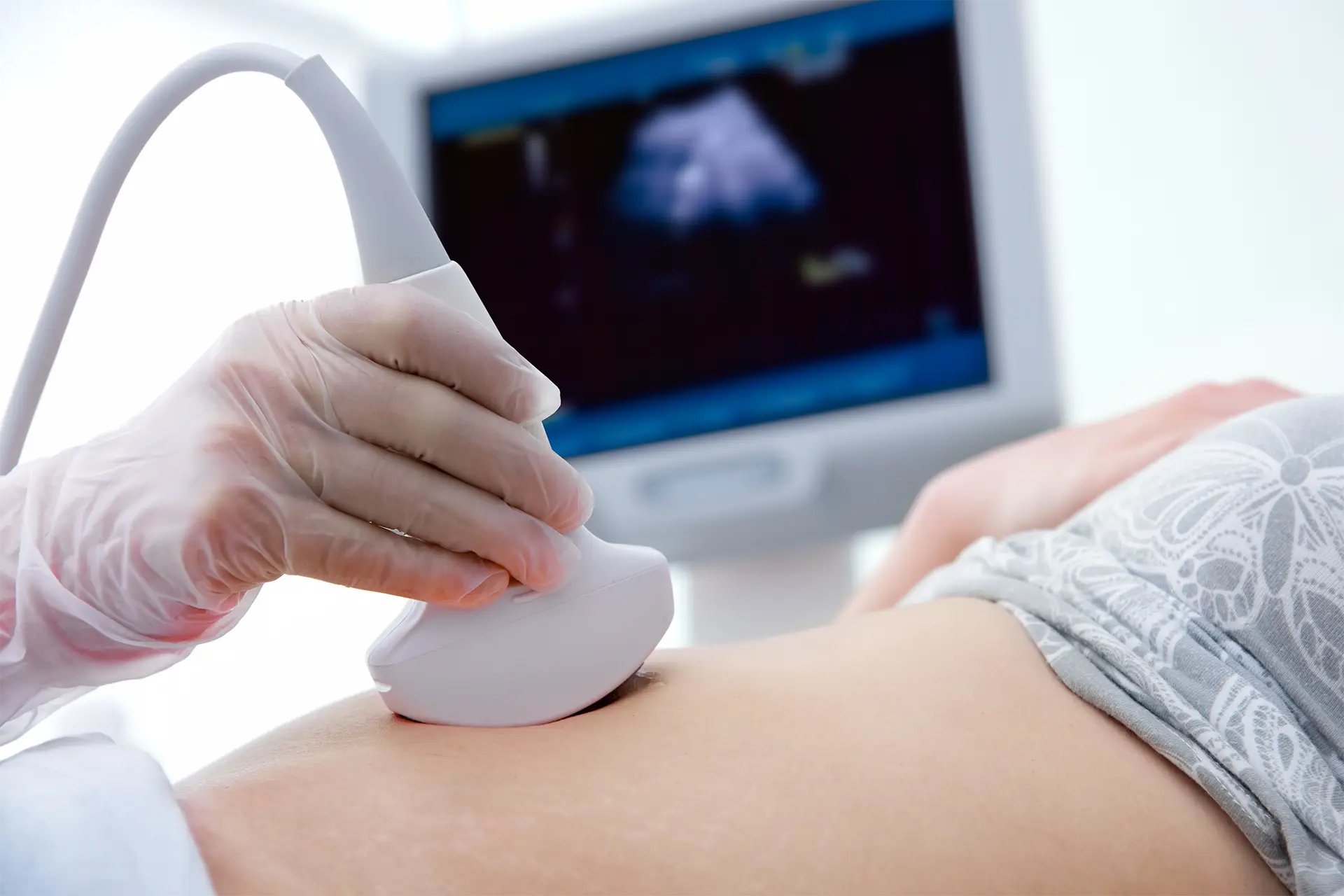TL;DR
- Ultrasound scans play a meaningful role in understanding how your baby is growing. While they cannot confirm every genetic condition on their own, they often provide the earliest clues so that parents have the time, information, and support to plan for their baby.
As your baby grows, it’s only natural to wonder if they’re developing well and if everything is progressing as it should.
Ultrasound scans are a way to get the peace of mind you need. More than just a routine scan, they also allow doctors to observe growth patterns, track organ development, and look out for features that may be linked to genetic conditions.
Keep reading to learn more about the types of disorders that an ultrasound scan can pick up so you can access the right support during your pregnancy.
Why Do Ultrasound Scans Matter During Pregnancy?
During each scan, an ultrasound is essential to help your doctor:
- Track growth and movement: Everything from your baby’s size to the way they move offers important clues about their overall health.
- Assess the placenta and amniotic fluid: Both play vital roles in nourishment and protection, and ultrasounds ensure they are functioning well.
- Identify structural differences: Sometimes, physical markers may be linked to certain genetic conditions. When these are picked up sooner, your doctor can look into them more closely.
Timeline for Ultrasound Scans During Pregnancy
Ultrasound scans are milestones throughout pregnancy — each one offering a closer look at how your baby is developing. Each plays a specific role in monitoring growth, screening for genetic conditions, and giving parents valuable reassurance along the way.
Below is a quick guide to when these scans usually happen, and what you can expect from each:
1
2
Often called the “mid-pregnancy scan.” The baby’s brain, heart, spine, face, and limbs are checked closely. If anything appears unusual, your doctor will explain what it might mean and whether further tests are recommended.
3
Assesses your baby’s growth, movement, placenta location, and amniotic fluid volume. This helps ensure your baby is developing well in the final stage of pregnancy and supports delivery planning if needed.
Identifying Early Signs of Genetic Conditions
If something on a scan looks a little different from what’s expected, it doesn’t necessarily mean there is a problem, but it can guide your doctor’s care plan.
Detecting Chromosome Abnormalities
- Down syndrome (trisomy 21): associated with intellectual disability and certain physical traits
- Trisomy 18 (Edwards syndrome): a condition affecting growth and multiple organs
- Trisomy 13 (Patau syndrome): a condition that can affect brain development and facial structures
Detecting Single-Gene Disorders
Some genetic conditions arise from a change in a single gene, rather than a whole chromosome. These disorders might impact organs, bones, the nervous system or other body systems. An ultrasound will not by itself confirm a single-gene disorder, but it may reveal structural features that prompt further investigation. For example, if the NT is more than 5.0 mm in the 11-14 weeks scan, Dr Chang will offer you an amniocentesis for chromosome micro-array (CMA) and whole exome sequencing (WES) to detect chromosome micro-deletions and single gene disorders respectively.
The following single-gene disorders are sometimes considered when ultrasound findings or family history raise questions:
- Spinal Muscular Atrophy (SMA): a recessive neuromuscular condition caused by changes in the SMN1 gene, leading to muscle weakness and respiratory concerns.
- Duchenne Muscular Dystrophy (DMD): an X-linked disorder due to variants in the DMD gene, which causes progressive muscle degeneration beginning early in childhood.
- Cystic Fibrosis (CF): a recessive condition from CFTR gene mutations, affecting the lungs, pancreas and other organs with thick secretions.
- Haemophilia A: an X-linked clotting disorder from F8 gene variants, which increases bleeding tendency and may lead to joint or internal bleeds.
- Fragile X Syndrome: an X-linked dominant condition affecting the FMR1 gene, which may cause intellectual disability and developmental delay.
Guiding Further Testing and Decisions
First-trimester Nuchal Translucency (NT) Scan
Often part of early screening, this ultrasound measures the small fluid-filled space at the back of the baby’s neck. A thicker measurement can be an early sign that there’s a chromosomal condition. A nuchal thickness more than 3.5 mm at the 11-14 weeks scan is high risk for chromosome micro-deletions. Dr Chang will offer you a CVS or amniocentesis for chromosome micro-array (CMA) to detect chromosome micro-deletions. If the nuchal thickness is more than 5.0 mm, an additional test, whole exome sequencing, will be added as well, to detect single gene disorders. However, the NT scan is only one piece of the puzzle. Your doctor will also consider your blood test results and maternal age to estimate the likelihood of such a condition.
Non-Invasive Prenatal Testing (NIPT)
As early as 10 weeks, NIPT can help evaluate the likelihood of conditions like trisomy 21, 18, and 13, triploidy, Monosomy X and 22q11 micro-deletion. When ultrasound and NIPT results are reviewed together, the screening picture becomes clearer and, barring any anomalous results, you may not require any invasive tests.
Further Diagnostic Tests
If the NIPT result indicates an increased likelihood of a condition, your specialist may recommend confirmatory testing such as:
- Chorionic Villus Sampling (CVS): Examines placental tissue to check for chromosomal or genetic changes.
- Amniocentesis: Analyses amniotic fluid to confirm whether a specific chromosomal or genetic change is present.
Supporting Delivery and Newborn Care
When a potential genetic concern is identified early, your doctor can put a thoughtful care plan in place long before delivery. Early planning can reduce stress and help you feel more confident, knowing that the baby will receive attentive care from day one.
This may include:
- Choosing a hospital with neonatal support: Ensures your baby receives appropriate monitoring and care immediately after birth.
- Coordinating with specialists: Such as cardiologists, paediatricians, or genetic teams, who can assess your baby early.
- Planning follow-up diagnostic tests: This confirms findings and guides treatment or developmental support.
- Considering early interventions: Therapy or medical support can be arranged to prepare your baby’s care.
- Understanding the condition: Information and counselling help parents feel supported throughout pregnancy and beyond.
Choosing the Right Obstetrician-Gynaecologist in Singapore
It is completely normal to worry about what ultrasound findings mean. With an experienced doctor serving you, though, you can clear your doubts and, if complications do arise, know that your health and your baby’s will be prioritised.
With over 35 years of practice, Dr TC Chang has overseen a range of maternal-fetal needs—from routine scans to complex pregnancies. This puts him in a position to identify potential issues early and explain results clearly to patients.



